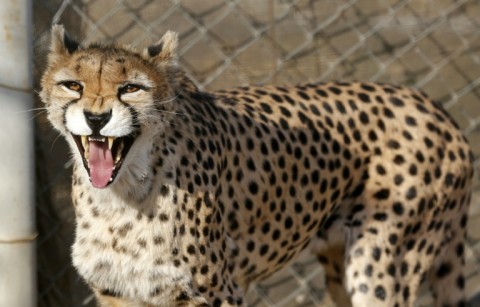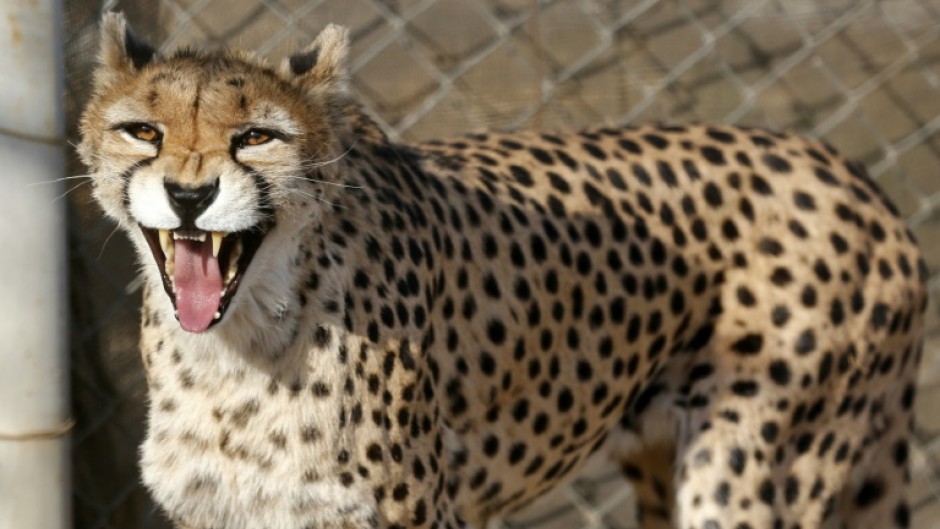
TEHRAN - The last survivor of three endangered Asiatic cheetah cubs born in captivity in Iran died in hospital Tuesday from kidney failure, state media reported.
"Pirouz who was admitted to the Central Veterinary Hospital due to kidney failure last Thursday, died after undergoing dialysis," the official IRNA news agency said.
"The loss of Pirouz and ineffectiveness of all the efforts made by the treatment team in the past few days to save the animal saddens me and all my colleagues, and we apologise to everyone that we could not keep this animal alive," hospital director Omid Moradi told IRNA.
Pirouz, meaning "victorious" in Persian, had become a source of national pride since its birth in May last year at a wildlife refuge in northeastern Iran.
Two other cubs born with him died that same month, but Pirouz survived at a time when only a dozen members of the species are left in the wild.
The Asiatic cheetah -– Acinonyx jubatus venaticus -- is threatened with "dangerous ongoing decline," according to data cited by the International Union for Conservation of Nature.
READ | Second endangered cheetah cub dies in Iran: state media
According to a 2017 study referenced by IUCN, the sub-species is confined only to Iran where there were "less than 50 mature individuals."
The world's fastest land animal, capable of reaching speeds of 120 kilometres (74 miles) per hour, cheetahs once stalked habitats from the eastern reaches of India to the Atlantic coast of Senegal.
They are still found in parts of southern Africa but have practically disappeared from North Africa and Asia.
Iran began a United Nations-supported cheetah protection programme in 2001.
In January 2022, deputy environment minister Hassan Akbari said Iran was home to only a dozen Asiatic cheetahs -- down from an estimated 100 in 2010.
Iran's environment department had hoped the birth of the cubs in captivity would help increase the cheetah population.

